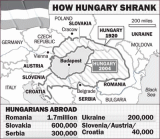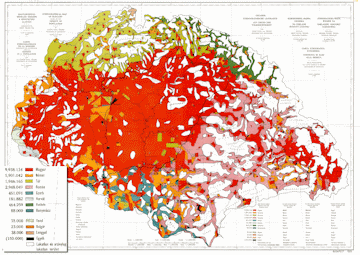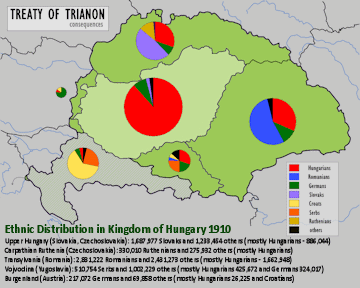 When Romania Turned Hungarian Bibles into Toilet Paper When Romania Turned Hungarian Bibles into Toilet Paper
June 14, 1985
The Wall Street Journal
by Peter K. Keresztes
"In all of the diabolical manifestations of Adolf Hitler's hatred for God and all religions keeping in mind that he burned Torahs - I don't think even he conceived of anything so ugly."
So fumed California Rep. Bob Dornan at a GOP-organized press conference last week on rights abuses in Romania. He was describing samples of toilet paper with Biblical words such as "Esau," "Israel," "Jeremias," "Satan" and "Isten" (Hungarian for God) embedded in the tissue. The sample panels are "incontrovertible evidence," Rep. Dornan said, that 20,000 bibles donated in the 1970s by the World Reformed Alliance of the Transylvanian Magyar Reformed Church with the permission of Bucharest were diverted to a mill in Braila, as labels on the rolls indicate, for recycling into toilet paper. The highquality Western paper and ink, however, resisted the smashing, and the Biblical words are clearly legible in the creases.
In lobbying for renewal of their Most Favored Nation trading status with the U.S., the Romanians in the past often cited the agreement to distribute the Bibles as an example of their magnanimity.
This barbaric profanity is but one example cited of charges over the past 20 years from Romania (Bucharest has flatly denied them) over minority and religiousrights violations. Laszlo Hamos, chairman of the New Yorkbased Committee for Human Rights in Rumania, which has monitored the situation there over the past nine years, says that "over the past two years physical brutalities, imprisonments, house searches and beatings against minorityrights advocates have markedly increased." Although the 2.5 million (officially 1.8 million) Hungarians Europe's largest national minority in that country of 23 million have been hit the hardest, Mr. Hamos says, ethnic Germans and Jews have also complained of abuses.
Here are some examples:
- The death last year of the Rev. Geza Palfi, who during his 1983 Chistmas homily bemoaned an edict by President Nicolae Ceausescu making Christmas a "day of labor." The Roman Catholic priest was arrested the following day by Securitate agents, according to the underground Hungarian Press of Transylvania, and died three months later of internal injuries, at the age of 48. This sort of brutality parRomania.
- Six other known deaths in recent years of Roman Catholic, Pentacostal and Baptist clergymen that occurred during or following interrogation.
- The "correction" of Romanian authorities of a construction error of one meter on a church by leveling it with a bulldozer.
So where are the indignant headlines and commentaries in the mainstream press? Nowhere. To the contrary, Flora Lewis, filing to the New York Times oped page last week from Bucharest, warned against the "verbal fist" that she saw in the call for a tougher U.S. stand by Ambassador David Funderburk as he resigned last month after 8º frustrating years in Bucharest. "Life is very difficult" in Romania, Ms. Lewis counseled, and "Policy requires nuance." Meanwhile the Capital Hill exposure of the desecration scandal got little ink outside the ethnic press.
Why doesn't the State Department act more resolutely? It quietly protested the death of Father Palfi, but, Mr. Hamos says, the U.S. delegation to the current Ottawa human rights conference in its statment, "Discrimination Against National Minorities," overlooked the plight of Europe's largest national minority. The Romanians, he adds, have been known to agree to bilateral talks at such conferences in exchange for suppression of criticism.
Mr. Funderburk's advocacy while ambassador of a harder U.S. line against Bucharest was easy for the State Department to ignore because of President Ceausescu's image as a "maverick" who dares to stand up to the Soviets and who therefore could be beneficial to U.S. interests.
But in fact, the price for Mr. Ceausescu's "independent line" is exacted from the hides of minorities and the devout in Romania, as part of a transparent deal with the Soviets whereby they tolerate Mr. Ceausescu's unorthodoxy as long as he keeps Romania from drifting in the direction of a Poland.
Last week's news conference, nevertheless, signaled a maturing U.S. attitude toward Romania. Michigan Rep. Mark Siljander has proposed legislation (HR 2596) to change the JacksonVanik amendment to the 1975 Trade
Act. The change would like Most Favored Nation trading status to a country's progress in correcting ethnic, religious and cultural persecution, in addition to the current requirement relating purely to emigration. The new law would be a powerful economic weapon in its own right that could be leveled on dictatorships, left and right. The Republican effort (Democrats are also launching one) seems, at least as far as Romania is concerned, to buck the position of the Reagan administraton, which last week proposed extension of the country's MFN status another year. Curiously, Rep. Sam Gibbons ID., Fla.) has yet to schedule the usual annual hearing to review Romania's trade status.
While the ability to emigrate is a fundamental human right, the prerogative to stay put and still live in dignity is equally one. The Siljander measure would provide leverage should the U.S. decide to exert pressure against what has been aptly described as Romania's cultural genocide of minorities the dispersal or exile of their intelligentsia; official curtailment of their educational, language and religious opportunities, and a campaign of intimidation against their cultural and religious leaders.
Romania has variously ignored, arbitrarily applied, and misused the emigration stipulations of JacksonVanik to embarass the U.S. For exampIe, even Ms. Lewis concedes that the recent dumping of a thousand or more wouldbe emigres in West Berlin constituted a "miniMariel."
If the U.S. is to formulate an honest and humane foreign policy toward Romania, it needs to peel away the myths enshrouding the Ceausescu phenomenon and recognize it for what it truly is.
Mr Keresztes is on the staff of the Wall Street Journal's editorial page.
[< Go to all AHF news] |
<< Back to AHF News on Rumania
Shortcuts
Why So Many Hungarians Across the Border?
 One thousand years of nation building successfully delineated groups based on culture, religion, geography, and other attributes to create the countries with which we are so familiar. While some Western European nations would continue power struggles and princely battles and civil wars, Hungary, founded in 896, was a peaceful multi-ethnic state for a 1000 years and her borders were virtually unchanged. Until 1920... One thousand years of nation building successfully delineated groups based on culture, religion, geography, and other attributes to create the countries with which we are so familiar. While some Western European nations would continue power struggles and princely battles and civil wars, Hungary, founded in 896, was a peaceful multi-ethnic state for a 1000 years and her borders were virtually unchanged. Until 1920...
The Treaty of Trianon in 1920... in the aftermath of WWI, was extremely harsh on Hungary and unjustifiably one-sided. The resulting "treaty" lost Hungary an unprecedented 2/3 of her territory, and 1/2 of her total population or 1/3 of her Hungarian-speaking population. Add to this the loss of up to 90% of vast natural resources, industry, railways, and other infrastructure. The clear winner of the land grab, was Rumania, who, established only 60 years earlier, more than doubled in size overnight.
Ethnic Distribution in the Kingdom of Hungary in 1910 (Hungarians shown in red)

[download extra large image 4962x3509]
[download large image 1000x707]
Hungarian populations declined significantly after forced removals such as the Benes Decrees and other pograms, the effects of WWI, and Trianon in 1920. With continued pressure and discriminative policies such as the 2009 Slovak Language Law, this trend continued over the past 90 years.

- In Upper Hungary (awarded to Slovakia, Czechoslovakia): 1,687,977 Slovaks and 1,233,454 others (mostly Hungarians - 886,044, Germans, Ruthenians and Roma) [according to the 1921 census, however, there were 1,941,942 Slovaks and 1,058,928 others]
- In Carpathian Ruthenia (awarded to Czechoslovakia): 330,010 Ruthenians and 275,932 others (mostly Hungarians, Germans, Romanians, and Slovaks)
- In Transylvania (awarded to Romania): 2,831,222 Romanians (53.8%) and 2,431,273 others (mostly Hungarians - 1,662,948 (31.6%) and Germans - 563,087 (10.7%)). The 1919 and 1920 Transylvanian censuses indicate a greater percentage of Romanians (57.1%/57.3%) and a smaller Hungarian minority (26.5%/25.5%)
- In Vojvodina 510,754 Serbs and 1,002,229 others (mostly Hungarians 425,672 and Germans 324,017)
- In Vojvodina and Croatia-Slavonia combined (awarded to Yugoslavia): 2,756,000 Croats and Serbs and 1,366,000 others (mostly Hungarians and Germans)
- In Burgenland (awarded to Austria): 217,072 Germans and 69,858 others (mainly Croatian and Hungarian)
[read more on the Treaty of Trianon]
AHF Statements on Trianon:
Selected AHF Articles on Rumania:
 Amerikai képviselők tiltakoznak Tőkés László miatt: Frank Wolf és James McGovern amerikai kongresszusi képviselők, a Tom Lantos emberjogi bizottság társelnökei tiltakozó levelet küldtek Traian Basescu román elnöknek, amiért Tőkés László kitüntetését Románia visszavette. [tovább] Amerikai képviselők tiltakoznak Tőkés László miatt: Frank Wolf és James McGovern amerikai kongresszusi képviselők, a Tom Lantos emberjogi bizottság társelnökei tiltakozó levelet küldtek Traian Basescu román elnöknek, amiért Tőkés László kitüntetését Románia visszavette. [tovább]
- Congressmen Frank R.Wolf (R-VA) and James P. McGovern (D-MA), Co-Chairmen of the Tom Lantos Human Rights Commission of the United States Congress, echo AHF's call, and send a letter to Traian Basescu, President of Romania, in connection with Bishop Tokes and the threatened revocation of the Order of the Star of Romania. [read more]
- AHF expresses concerns for Hungarian Minority in Rumania to Vice President Joe Biden
- AHF article on Autonomy for Romania's Hungarian Communities published in Foreign Policy Review
- AHF Concerns related to the Hungarian Minority in Transylvania
- Controversy at the Babes-Bolyai State University
- Church and Synagogue Property Confiscation
- "There are no Nationalities in Romania" The American Hungarian Federation Co-Hosts Lecture by Bishop Arpad Szabo from Kolozsvar
- Révai Miklós emléktábla Nagycsanádon
- Rumania's Basescu in the US
- AHF on Dual Citizenship for Hungarians
- The Csango Hungarians of Moldavia
- The Tragedy of the Treaty of Trianon
- An Essay on the foundations of Rumanian Identity, Nationalism and Ethnic Cleansing - CONCEPTUAL CONFUSIONS CONCERNING THE ROMANIAN IDENTITY: NEAM AND POPOR AS EXPRESSIONS OF ETHNO-NATIONALISM (PART 3) - "...the motivation and the goal was common: racially determined mass murder." (Appeared in RFE/RFL Newsline, 6/5/2005 By Victor Neumann, professor of history at the West University of Timisoara, Romania.) [download]
 You will need the free Adobe Reader to open the following files. Click the image to download. You will need the free Adobe Reader to open the following files. Click the image to download.
Articles and Essays by AHF Members
- "NATO Enlargement" by Frank Koszorus Jr. March 29, 2004
Remarks on the Occasion of the Enlargement of NATO, Corcoran Gallery of Art, Washington, D.C. [download]
---
- "Nato Enlargement And Minority Rights: Prerequisites To Security" by Frank Koszorus, Jr., April 2003
A memorandum that was submitted to Robert A. Bradtke, Deputy Assistant Secretary for European and Eurasian Affairs, and Heather A. Conley, Deputy Assistant Secretary for European and Eurasian Affairs during a roundtable discussion on "NATO Enlargement and the Current State of the Trans-Atlantic Alliance." This submission follows several other intiatives, including submissions to Lord Roberston, Secretary General of NATO. [download]
---
- “Nato Enlargement: Promoting Western Values, Strengthening The Alliance” by Frank Koszorus, Jr., April 29, 2003
A Statement Before The United States Senate Committee On Foreign Relations.
[download]
---
- "U.S. Senate Unanimously Ratifies Nato Treaty; Senators Raise Rights Of Minorities: Federation Supports Efforts Aimed At Encouraging Romania And Slovakia To Respect Rights Of Hungarian Minorities And Restore Communal Properties" - Press Release by Zoltan Bagdy, May 9, 2003 [download]
Congressional Resolutions and Records
- H.RES 191 - A RESOLUTION urging the "prompt and fair restitution of church properties by Romania and Slovakia - TOM LANTOS / TOM TANCREDO (April 6th 2005) in the House of Representatives [download]
- A RESOLUTION REGARDING THE ISSUE OF TRANSYLVANIAN HUNGARIANS -- HON. DONALD E. `BUZ' LUKENS (Extension of Remarks - February 26, 1990) in the House of Representatives [download]
- VIOLENCE IN TRANSYLVANIA -- HON. DON RITTER (Extension of Remarks - March 22, 1990) in the House of Representatives [download]
- Transylvanian Monitor #14: Property Restitution.
Join online!

|



